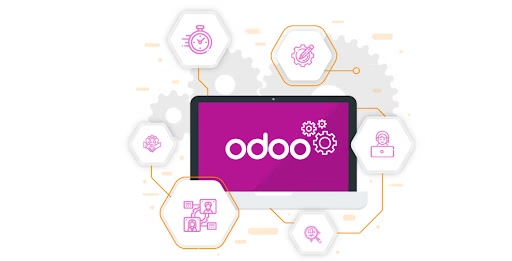Enterprise Resource Planning (ERP) software has become the backbone of modern businesses. Companies use ERP systems to manage resources, track processes, and improve collaboration across departments. The challenge is that many ERP platforms are outdated, costly, and not flexible enough to meet new demands. Odoo is different. It’s open-source, modular, and adaptable for businesses of all sizes. More organizations are choosing it because it grows with them instead of locking them into rigid processes. With a wide range of applications, simple integration, and a strong community, Odoo is becoming a serious competitor to long-standing ERP giants. The flexibility and affordability make it attractive to startups and large enterprises alike. This article explains why Odoo development is considered the future of ERP solutions, the benefits it provides, and how it is reshaping business operations across industries.
The Growing Need for Flexible ERP Systems
Businesses are not static. They expand, scale down, change products, or shift operations. Older ERP systems don’t adapt well to change. They often require expensive updates, new licenses, and complex maintenance. Odoo solves this problem with modular applications.
You don’t need to install the entire system at once. You can start with accounting and add CRM later. Or start with inventory and add HR when you grow. This flexibility means businesses only use what they need. And when they need more, the system is ready.
Companies today need ERP systems that work in the cloud, integrate with mobile devices, and connect with other tools. Odoo does all of that without extra licensing costs. The demand for flexibility is a big reason Odoo development is gaining ground.
Open Source Advantage
Most ERP systems are closed and proprietary. They lock companies into long-term contracts. Odoo is open source. This changes the way businesses approach ERP.
With open source, companies can customize features. They can change workflows, add fields, or build apps without waiting for a vendor update. Developers can create tailored solutions faster. This saves time and money.
The open-source community also plays an important role. Thousands of developers contribute to Odoo apps, improvements, and fixes. That means businesses benefit from continuous updates, security patches, and innovation. Open source ensures the system stays current with global business needs.
Cost Efficiency
ERP solutions often carry a high cost. Licensing fees, maintenance, and support can run into thousands of dollars. Small and medium businesses can’t always afford these systems. Odoo provides an affordable option.
There’s no large upfront licensing fee. Businesses pay for what they use. The open-source version is free to start. Even the enterprise version costs less compared to competitors like SAP or Oracle.
The modular design also reduces costs. Companies don’t waste money on features they don’t use. They can add applications step by step, making it budget-friendly.
Cost efficiency makes Odoo development attractive for startups, small companies, and growing businesses that need powerful ERP without financial strain.
Modular Design
Odoo’s modular system is one of its strongest advantages. It has more than 30 core modules and thousands of community apps. Each module focuses on one function. Examples include accounting, CRM, inventory, sales, HR, and marketing.
This modularity makes Odoo highly customizable. A retail store can use sales, inventory, and POS modules. A manufacturing company can add MRP, quality control, and purchase modules. The system adapts to different industries without major changes.
If a business wants to expand, it simply adds new modules. There’s no need to replace the whole ERP system. This design is future-proof because it grows with the business.
Easy Integration
Businesses use different software tools for operations. Integrating them into ERP is often complex. Odoo makes integration simple.
It connects with eCommerce platforms like Shopify and Magento. It integrates with payment systems like PayPal and Stripe. It also links with shipping carriers like FedEx and DHL. These integrations reduce manual work and errors.
Odoo also provides APIs, which developers use to connect other tools. That means a company can link Odoo with its existing systems, creating one connected ecosystem. Integration ensures smooth operations and real-time data flow across departments.
Cloud and Mobile Access
Modern businesses don’t just operate in offices. Employees need access from remote locations, factories, or client sites. Odoo supports both cloud hosting and mobile access.
Cloud hosting allows companies to run Odoo without heavy infrastructure. Updates, backups, and scaling are easier in the cloud. Employees can log in from anywhere with internet access.
Odoo also provides mobile apps. Employees can manage sales, check inventory, or approve tasks from their phones. Mobile access keeps the system active and useful in real-world situations, making Odoo practical for modern business needs.
Scalability for Growth
Small businesses often avoid ERP systems because they think they’re too big or complex. Odoo breaks that barrier. It starts simple and grows with the company.
For a startup, Odoo can begin with invoicing and sales. As the business expands, it can add HR, marketing, and manufacturing. This scalability is critical for growing businesses. They don’t have to switch systems when they expand.
Even large companies benefit. Odoo supports thousands of users and large-scale operations. Its ability to serve both small and large businesses is one reason it is seen as the future of ERP.
Strong Community and Vendor Support
Odoo has one of the largest ERP communities. Developers, consultants, and businesses share solutions, modules, and knowledge. This community support makes it easier to find help and best practices.
There are also certified Odoo partners who provide professional services. If a company needs custom development or consulting, it can work with a partner. Many businesses rely on an Odoo Development Company to tailor solutions for their needs.
The combination of community support and professional vendors ensures that businesses have the resources to implement and maintain Odoo successfully.
Security and Reliability
Security is a major concern in ERP systems. They handle sensitive data like finance, HR, and supply chain information. Odoo addresses this with regular updates, role-based access control, and secure hosting options.
The open-source nature also adds transparency. Developers can review the code and identify potential issues. This makes the platform more reliable. Odoo’s growing use in industries like healthcare, finance, and retail shows its ability to handle sensitive operations securely.
AI and Automation Features
The future of ERP lies in automation and smart decision-making. Odoo is adding features that use artificial intelligence and automation.
For example, Odoo can automate invoice reminders, forecast sales, or suggest inventory restocking. These features reduce manual work and help businesses make better decisions faster.
As AI evolves, Odoo will likely add more predictive analytics and intelligent process automation. This makes it ready for future business challenges.
Industry-Specific Solutions
Not all businesses are the same. Odoo provides industry-specific solutions through its apps and custom modules.
Manufacturers can use modules for MRP and quality control. Retailers benefit from POS and eCommerce. Service companies use project management and timesheet apps.
This industry focus allows Odoo to serve a wide range of businesses. It’s flexible enough to work across sectors while still offering specialized functions.
Comparison with Traditional ERP Systems
When comparing Odoo with traditional ERP systems like SAP, Oracle, or Microsoft Dynamics, clear differences appear.
- Cost: Odoo is more affordable.
- Flexibility: Odoo offers modular design, while others are rigid.
- Customization: Odoo is open source, allowing changes, while others are limited.
- Integration: Odoo integrates easily with modern tools.
- Community: Odoo has strong open-source community support.
These differences explain why many businesses are switching to Odoo. It meets modern needs better than many traditional ERP systems.
The Role of Developers
Odoo’s flexibility depends on developers. They customize modules, integrate apps, and build features. Skilled developers make Odoo even more powerful for businesses.
Companies rely on developers to create tailored workflows, reports, and dashboards. This ensures Odoo matches the way a company operates, instead of forcing the company to adjust to the software.
As demand for Odoo grows, the role of developers becomes central. They are shaping the future of ERP through innovation and customization.
Why Businesses Are Choosing Odoo
The reasons businesses choose Odoo are clear:
- Lower cost compared to other ERPs
- Easy customization
- Scalable design for growth
- Mobile and cloud support
- Strong community and vendor network
- Automation and AI readiness
These features make Odoo an attractive choice for companies that need ERP without complexity and high costs.
Looking Ahead: Odoo’s Future
Odoo continues to grow each year. New versions are released with improved features and apps. The focus on open source, flexibility, and affordability positions Odoo as a long-term ERP solution.
The trend shows more companies are moving away from old ERP systems to Odoo. This shift is likely to continue as businesses need more adaptable tools. Odoo’s ability to handle new technologies, integrate with modern apps, and scale with businesses makes it a reliable choice for the future.
Conclusion
Odoo development is shaping the future of ERP solutions. Its open-source model, modular design, affordability, and flexibility give it an edge over traditional ERP systems. It meets the needs of small startups and large enterprises alike. With strong community support and continuous innovation, Odoo is not just another ERP system—it’s becoming the standard for how modern businesses manage operations. As technology advances, Odoo’s adaptability ensures it will remain a top choice for organizations seeking efficient and cost-effective ERP solutions.
Visit website for more interesting collection of articles







